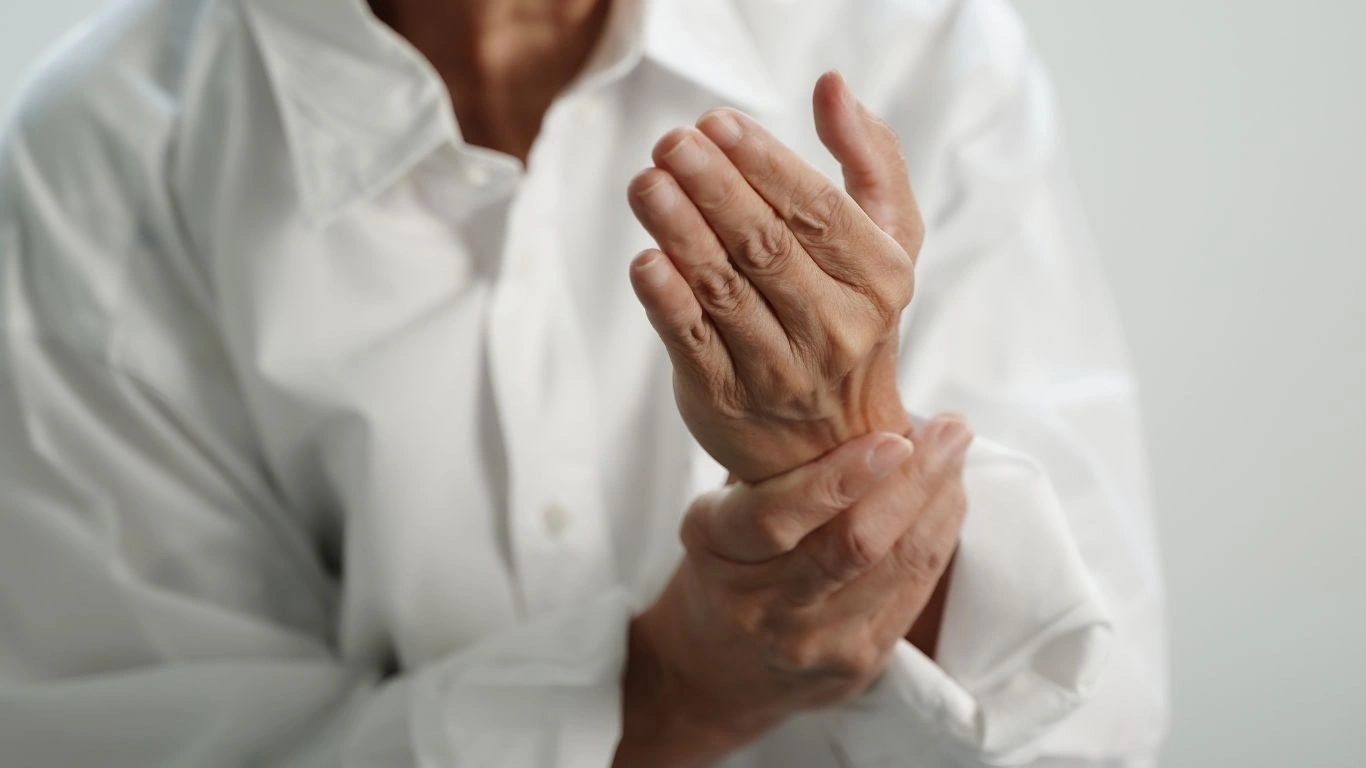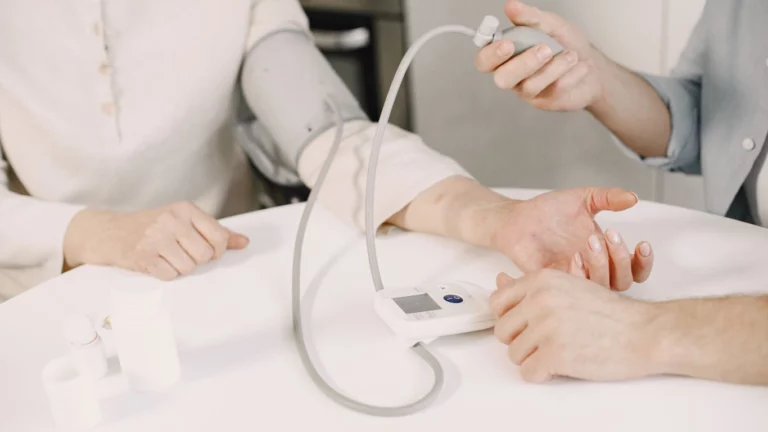Rheumatoid Arthritis and Pregnancy Tips – What You Need to Know
If you’re navigating pregnancy while managing rheumatoid arthritis (RA), you might be feeling a bit overwhelmed. Don’t worry! You’re definitely not alone. Let’s break down everything you need to know to keep your body and your baby safe and healthy during this exciting (yet sometimes tricky) time.
Pregnancy can be a beautiful journey, but if you have rheumatoid arthritis (RA), there are a few extra things you might need to keep in mind. RA, an autoimmune condition that causes inflammation in your joints, can make things like moving around or even getting out of bed a bit challenging, especially when you’re expecting.
The good news? With some careful planning and the right approach, managing RA during pregnancy is totally doable. Whether you’re newly diagnosed with RA or you’ve been living with it for a while, I’ve got tips and advice to help you feel more confident and prepared for your pregnancy.

Managing RA During Pregnancy: What’s Different?
When you’re pregnant, your body goes through a lot of changes—hormonal shifts, physical changes, and immune system adjustments. For someone with RA, these changes can affect how you experience symptoms and how your medications work.
Hormonal Changes and RA
Pregnancy causes an increase in certain hormones (like progesterone and estrogen), and these can have an interesting effect on RA. Some women report experiencing less inflammation during pregnancy, especially in the second and third trimesters. So, you might notice your joints feeling better! However, this doesn’t happen for everyone, and it doesn’t mean that your RA will go away entirely.
On the flip side, some women find their RA symptoms worsen after childbirth due to the drop in hormones. So while things might feel easier during pregnancy, you’ll need to prepare for potential flare-ups afterward.
Managing Flare-ups
Flare-ups can still happen during pregnancy, and when they do, they can be harder to treat. That’s why it’s important to have a plan in place with your doctor. Some medications commonly used to manage RA may not be safe during pregnancy, so your healthcare provider may suggest alternatives that are safer for both you and your baby.

RA Medications and Pregnancy: What’s Safe?
The question of which medications are safe during pregnancy is one of the top concerns for women with RA. You don’t want to risk your baby’s health, but you also don’t want to suffer through painful joints.
Methotrexate: Not Safe During Pregnancy
Methotrexate, a common RA medication, is not safe during pregnancy. It can cause birth defects and should be stopped before you try to conceive. If you’re on methotrexate, you’ll need to switch to a different medication as soon as possible.
Biologics: Proceed with Caution
Biologic drugs, which are used for moderate to severe RA, are sometimes considered for use during pregnancy, but it depends on the specific medication and your individual situation. Some biologics may be considered safe, while others may need to be avoided, especially during the first trimester. Always consult with your doctor before making any changes to your medications.
NSAIDs: Use with Caution
Nonsteroidal anti-inflammatory drugs (NSAIDs), like ibuprofen, are often avoided during pregnancy, especially in the later stages, as they can interfere with the baby’s development. Talk to your doctor if you need pain relief options.
Steroids: Short-term Use May Be Safe
Steroids, like prednisone, are sometimes used to manage RA flare-ups during pregnancy. Your doctor may prescribe a low dose for short-term use if necessary. While steroids should be used carefully, they are often considered a safer option for pregnancy-related RA flare-ups.

RA and Pregnancy: Managing Symptoms Naturally
In addition to medication management, there are several natural ways to ease RA symptoms during pregnancy. These tips can help you feel more comfortable without risking your baby’s health.
Stay Active, But Don’t Overdo It
Exercise can be a lifesaver when managing RA. Regular movement helps keep your joints flexible and strengthens the muscles around them. Low-impact activities like swimming, walking, or prenatal yoga can be fantastic options. However, always listen to your body and avoid overexerting yourself.
Healthy Diet
Eating a balanced diet full of anti-inflammatory foods can help manage RA symptoms. Think omega-3 fatty acids (found in fish like salmon), colorful fruits and veggies, whole grains, and lean proteins. These foods are not only great for RA but also give you the nutrients you need during pregnancy.
Rest is Key
It’s so important to listen to your body, especially when you’re pregnant. If your joints are feeling particularly sore, don’t push through the pain. Make sure you’re getting plenty of rest and using supportive pillows when you sleep to ease joint discomfort.
RA and Pregnancy: What About After Birth?
The postpartum period can come with its own set of challenges, especially if you have RA. After childbirth, your hormone levels will drop, which can sometimes trigger a flare-up. It’s important to keep in touch with your healthcare provider during this time to adjust your medications or treatment plan as needed.

Appendices
FAQs
- Can I breastfeed if I have rheumatoid arthritis? Yes, you can breastfeed with RA. In fact, breastfeeding may help reduce some of your symptoms due to the hormonal changes it triggers. However, talk to your doctor about any medications you’re taking to ensure they’re safe for breastfeeding.
- Is it safe to take medication for rheumatoid arthritis during pregnancy? Some medications are safe, but others, like methotrexate, are not. Always consult your doctor to find the safest options for managing your symptoms during pregnancy.
- How can I manage RA flare-ups during pregnancy? It’s essential to work with your healthcare provider to adjust your medications, rest when necessary, and maintain a healthy diet. Light exercise and stress management can also help reduce flare-ups.
- Can pregnancy improve my rheumatoid arthritis symptoms? For some women, pregnancy can improve RA symptoms, particularly during the second and third trimesters. However, not every woman experiences this, and symptoms can return after childbirth.
- What can I do to prevent joint damage during pregnancy? Maintaining a healthy weight, staying active, and managing your RA with the help of a doctor can help prevent joint damage. Regular check-ups are also crucial.
References
- American College of Rheumatology. (2023). Rheumatoid Arthritis and Pregnancy. Read Article

Tarra Nugroho is a dedicated Nurse Practitioner with a strong foundation in family and preventive care. She brings both compassion and clinical expertise to her practice, focusing on patient-centered care and health education. As a contributor to Healthusias.com, Tarra translates medical knowledge into clear, empowering articles on topics like women’s health, chronic disease management, and lifestyle medicine. Her mission is simple: help people feel seen, heard, and informed—both in the clinic and through the content she creates. When she’s not caring for patients, Tarra enjoys weekend hikes, plant-based cooking, and curling up with a good health podcast.







